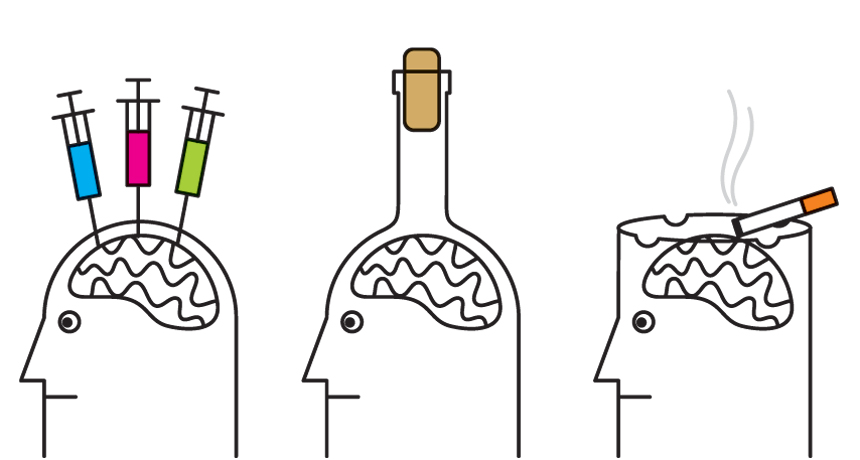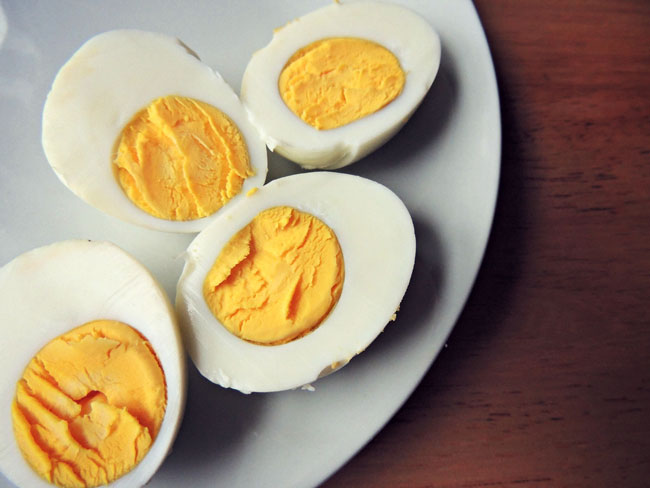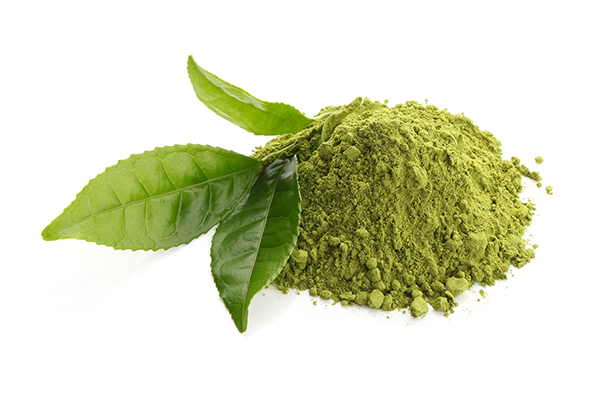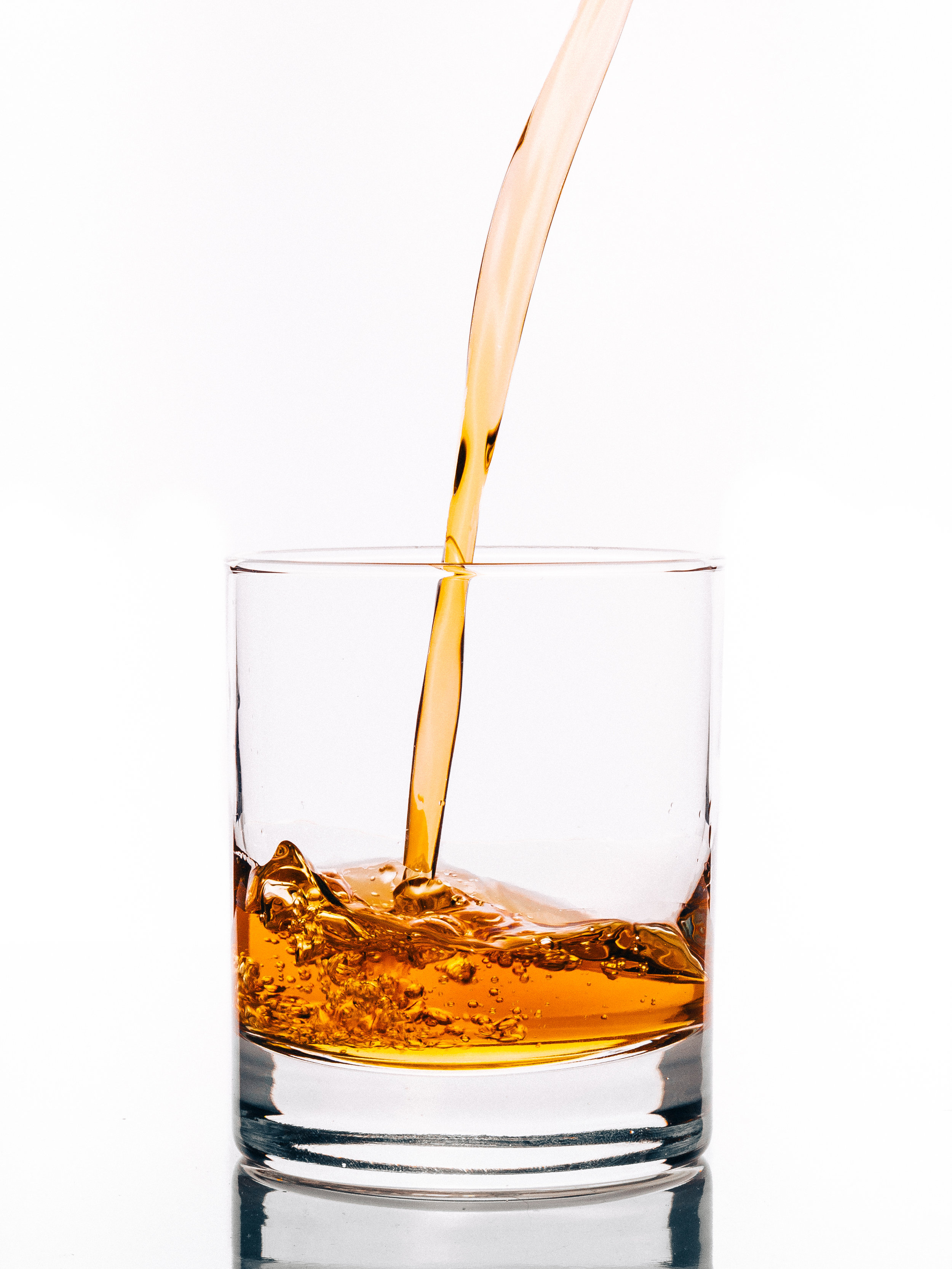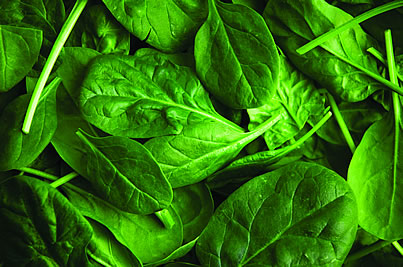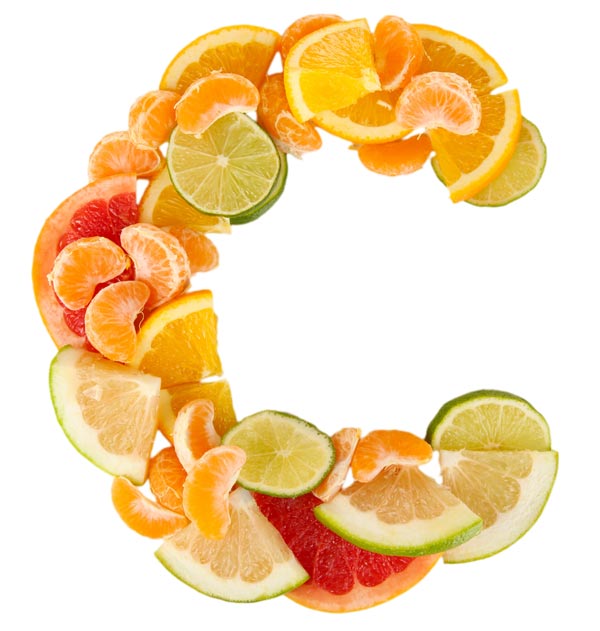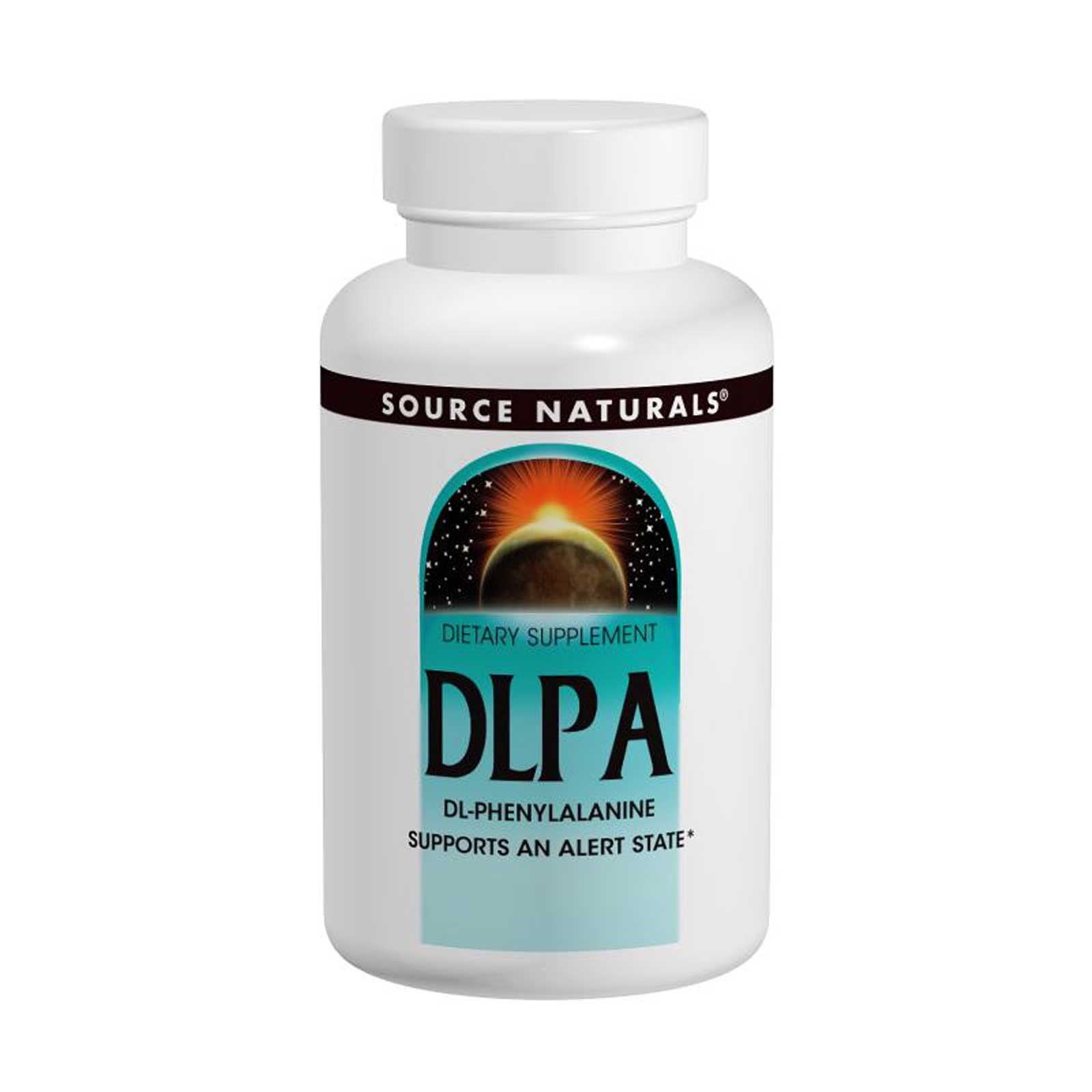This herb increased your resilience to physical and mental stress. It can calm you down, or increase your energy, depending on the needs of your body. In other words, it helps the body normalize itself and reach a state of physical and mental balance
Read more9 Supplements Proven to Help You Overcome Addiction and Withdrawal
I've been dependent on a lot of substances over the years.
When my brain wasn’t working and I struggled with mental illness, it simply made sense to find immediate relief.
I had to rely on substances outside of myself - even if they weren't good for me - until I found better, long-term, sustainable solutions.
I honestly felt like I had no other choice at the time.
And I know there are a lot of people out there grappling with the same problem.
You may feel like you need something to get through the day.
And then something else to fall asleep at night.
Perhaps that’s alcohol, cigarettes, cannabis or harder substances like cocaine, heroin, methamphetamines.
Or maybe you’re on prescription medication, such as antidepressants or benzodazipenes.
And you just have no idea how you could possibly live without these substances.
I’m here to tell you that you can. And you can thrive.
These 9 nutrients, vitamins and supplements have helped me minimize withdrawal symptoms, overcome my addictions, and get on with my life.
I personally have experience with tobacco, nicotine, alcohol, stimulant, benzodiazepines and antidepressant dependence, addiction and withdrawal.
And even if you don’t struggle with addiction, these nutrients are still great for optimal brain function and mental health.
How Does Nutrition And Supplementation Impact Addiction?
Addiction is not simply a psychological issue.
Historically, most drug treatment programs have included counseling and 12-step approaches like Alcoholics Anonymous (AA).
But these traditional approaches are not very effective.
In her book Seven Weeks to Sobriety, Dr. Joan Mathews Larsen points to studies showing that AA has a success rate of about 25 per cent.
This is because they address the psychological aspects of addiction without considering the physical aspects of the disease.
And Dr. Charles Gant worked as the physician and psychiatric consultant for the New York State prison system, and dealt with hundreds of drug users and traffickers.
He realized that they wouldn’t overcome their addictions without addressing their physical health:
“Unless the biochemical imbalances which are the true causes of substance problems are corrected, the benefits of psychological counseling will be marginal for most people.”
Addiction is a chronic brain disease. Studies show that drugs physically change the structure and functioning of the brain, and these documented brain changes lead to cravings (96).
And in my experience and research, high-quality bioavailable nutrients are an important aspect of combating and correcting this.
Research shows that vitamin and mineral deficiencies can cause metabolic imbalances that create addictive cravings (97, 98).
Dr. Roger Williams, an American biochemist who discovered pantothenic acid (vitamin B5), found that rats that were deficient in certain vitamins consumed more alcohol than those that were not vitamin deficient. But once those vitamin deficiencies were fixed, alcohol consumption decreased (99).
Nutritional deficiencies can also cause withdrawal-like symptoms such as fatigue, depression, irritability, and other mental symptoms that block recovery and lead to a relapse.
So, without further ado, let’s get into nutrients and supplements that helped me the most. with my addiction and withdrawal, and explore the research behind them.
1. Citicoline
Citicoline (also known as CDP-Choline) is the most bioavailable form of choline.
Choline is an essential B vitamin that most people don’t consume enough of, because very few foods in the Western diet contain it. That’s why I recommend supplementing with it.
Citicoline has anti-inflammatory and neuroprotective effects, and enhances the synthesis of acetylcholine and dopamine, which are two neurotransmitters that are critical for optimal brain function. It also increases the number of acetylcholine and dopamine receptors in your brain (2-7).
Overall, citicoline is one of my favourite supplements for optimal brain function and mental health.
And there’s evidence that it helps reduce addiction to drugs (1).
In one study, people previously addicted to cocaine took 500mg of citicoline twice daily for two weeks and experienced a reduction in cravings for the drug (8).
In another study, people with cocaine dependence and bipolar disorder who supplemented with citicoline reduced their cocaine use. Researchers had directed them to not consume cocaine during the study, and at the end of it, the researchers found less cocaine in the urine of the participants (9).
Some preliminary research also suggests citicoline could help people with alcohol, cannabis and food addiction (10).
It’s important to point out that many prescription drugs are anticholinergic, meaning they reduce acetylcholine in the brain.
The commonly-prescribed antidepressant Wellbutrin is anticholinergic, meaning it inhibits the physiological action of acetylcholine. I took it for multiple years, and I experienced gradual cognitive decline during that time.
Once I got off Wellbutrin, I felt pretty terrible. But once I started supplementing with citicoline, I noticed an improvement in my cognitive function because it increased my levels of acetylcholine and dopamine. I still take it to this day because it helps me focus, improves my mental energy, and clears brain fog.
You can also find some choline in beef liver and egg yolks. That's why I'm a big fan of eating these foods regularly. They’re included in my Free Grocery Shopping Guide for Optimal Brain and Mental Health.
But supplementing with citicoline has a more immediate, noticeable effect.
Citicoline is included in the Optimal Brain supplement.
Make sure you read this article to learn more about the remarkable benefits of Citicoline.
2. Theanine
Theanine is a relaxing amino acid found in tea. It has a number of brain and mental health benefits.
It’s known to produce a calming effect on the brain by crossing the blood-brain barrier and increasing the production of both GABA and dopamine in the brain. Unlike prescription anti-anxiety medication, it does not cause sedation and drowsiness (13, 14, 15).
As I’ve discussed before, theanine can protect your brain from alcohol, increase your brain’s growth hormone, and lower your stress hormones.
Considering all of this, it’s not too surprising that it has anti-addictive properties and can help reduce withdrawal symptoms.
According to the research, it’s particularly helpful when it comes to withdrawal from nicotine and opioids (16, 17).
I find that theanine improves my mood, helps me focus and cancels out the jitters of my morning coffee. It’s sort of like meditation in a pill. My mind has a tendency to jump around a lot, and theanine helps me “zero in” on what I’m doing.
However, too much theanine can also make people anxious. This is because theanine increases alpha brain waves, and I found out that very high alpha brain waves can actually cause anxiety as well. I usually take just 200 mg, but you should experiment and see how much you can tolerate.
You can also get theanine from black and green tea. But there’s usually not enough theanine in them to have a dramatic effect. That’s why I supplement with pure theanine.
Theanine is available in this anti-anxiety supplement, along with a number of other natural compounds that have helped me manage my anxiety over the years.
3. Omega-3 Fatty Acids
Omega-3 fatty acids are essential fats that the body cannot produce itself.
They are found primarily in fish and are necessary for the normal functioning of your brain and nervous system (18).
They can support your mitochondria and increase your brain’s growth hormone, and have been shown to improve mood, sleep, learning and memory. They also protect against psychiatric disorders including depression, mild cognitive impairment, dementia and Alzheimer's disease (19-21).
Considering all this, it’s not too surprising them that omega-3 fatty acids can also help addicts and reduce their withdrawal symptoms.
Research shows that increased anxiety is one of the primary reasons why substance abusers and alcoholics tend to relapse (23, 24).
And one study found that giving omega-3 fatty acids to substance abusers significantly reduced their anxiety (22).
Smokers have lower levels of omega-3 fatty acids, and treatment with fish significantly reduces their level of dependence (25, 28).
Other studies have shown that omega-3 supplements reduce cravings for nicotine and reduce the number of cigarettes people smoke daily (26, 27).
Researchers have also studied the relapse rates of cocaine addicts discharged after a period of detoxification. And they found that the cocaine addicts who relapsed had significantly lower levels of omega-3 fatty acids in comparison to addicts who didn’t relapse (29).
Lastly, in abstinent alcoholics, elevated omega-3 intake reduces stress and cortisol, and omega-3 fatty acids significantly lower the desire for alcohol in mice (30, 31).
“These bipolar mice, like some bipolar patients, love alcohol. The mice on DHA (an omega-3 fatty acid) drank much less; it curtailed their alcohol abusive behavior. There is now substantial evidence at the molecular level that omega-3 fatty acids work on the brain in ways similar to psychiatric drugs.”
Unfortunately, most people don't consume enough omega-3 fatty acids through their diet. That’s why I recommend people supplement with krill oil, a special kind of fish oil that contains the essential omega-3 fatty acids. I find that I have a brighter outlook on life when I take krill oil consistently.
4. Acetyl-L-Carnitine (ALCAR)
Acetyl-L-Carnitine (ALCAR) is an acetylated form of the amino acid carnitine.
It has neuroprotective and cognitive-enhancing effects, and as I’ve discussed before, it can support your mitochondria, protect your brain from alcohol, and help you overcome brain fog.
It can also reduce cravings and withdrawal symptoms.
In one study, alcoholic patients treated with ALCAR stayed sober for longer because it reduced their cravings (48).
ALCAR can also help treat opiate addiction and withdrawal.
Thirty subjects with methadone dependence were given 2 grams of ALCAR daily during a 3-week detoxification period, and it reduced their pain and the length of their withdrawal (49).
And research in rats shows that ALCAR can significantly decrease alcohol consumption and reduce the onset of tremors during alcohol withdrawal. Researchers concluded that it should be considered in the treatment of alcohol dependence (50).
ALCAR gives me a huge boost in mental energy and resilience. It sort of feels like drinking a cup of coffee, so it’s helpful if you want to stop or reduce your intake of caffeine.
It's included in the Optimal Brain supplement.
Make sure you read this article to learn more about the remarkable benefits of ALCAR.
5. N-Acetyl-Cysteine (NAC) and/or Glutathione
N-acetyl-cysteine (NAC) is a modified form of the amino acid cysteine.
As I’ve discussed before, it can help treat several mental illnesses.
But it can also reduce addiction and cravings during withdrawal (32-34, 41, 42, 45):
In a small study, 13 people abstaining from cocaine were given NAC or placebo over two days. The participants who received NAC witnessed a significant reduction in their withdrawal symptoms and cravings for cocaine. Follow-up studies also showed that NAC reduced desire and interest in cocaine (35-37).
Smokers voluntarily reduced their cigarette use by around 25% after two weeks of supplementing with NAC (38, 39).
Young marijuana users claiming to be addicted to marijuana supplemented with NAC twice daily for four weeks and experienced a significant reduction in their symptoms of addiction (43, 44).
And it’s not just addiction to drugs. NAC also shows promise for the treatment of gambling addiction. A randomized control trial with 27 pathological gamblers showed that gamblers who supplemented with NAC scored 60% lower on the “Obsessive Compulsive Scale for Pathological Gambling." (40).
NAC is also the precursor to glutathione, your body’s master antioxidant, which can help fight addiction.
Chronic use of drugs, such as cocaine, methamphetamine and alcohol, can lead to the formation of oxidative stress (47).
Oxidative stress can change neuronal pathways and cause addictive behaviour. But glutathione can reduce oxidative stress and therefore decrease the development of addiction (46).
NAC is included in Optimal Antiox, along with a number of other antioxidants and nutients that can help you overcome addiction and manage withdrawal.
6. Vitamin D
Vitamin D is a fat-soluble vitamin that our skin synthesizes when exposed to the sun.
Every tissue in your body has vitamin D receptors, including the brain, heart, muscles, and immune system.
This means your entire body needs it to function properly and a deficiency can lead to costly physiological and psychological consequences, including addiction.
Researchers have concluded that chronic vitamin D deficiency is an environmental factor contributing to drug use. And supplementation should be considered for the effective treatment of drug abuse and addiction (51-54).
Other studies have discovered that:
Vitamin D protects against the dopamine-depleting effects of methamphetamine (52-54);
There is also a positive association between vitamin D deficiency and severity of alcohol-use disorders (55); and
Patients prescribed narcotic pain medication – such as morphine, fentanyl or oxycodone – end up having to take higher doses if they are deficient in vitamin D (56).
I take a Vitamin D supplement every day to optimize my levels.
It's important to test and monitor your Vitamin D levels before and after supplementing with it.
7. Magnesium
Magnesium is a vital mineral that participates in more than 300 biochemical reactions in the body. This includes neurotransmitter and hormonal activity, both of which can have a huge effect on your mood and brain function.
Magnesium is one of the three nutrients that I think everyone should be taking for their brain, as most people are deficient.
The mineral has been shown to decrease dependence on opiates, nicotine, cocaine, amphetamine and alcohol, and reduce the intensity of withdrawal symptoms when stopping these drugs (84).
It can also lower relapse rates, particularly with cocaine and amphetamine addicts (84).
And researchers have concluded that magnesium supplementation can decrease nicotine addiction in heavy smokers.
It does this by naturally improving the stimulation of the reward system, which reduces the need for stimulation by nicotine or by others addictive substances (85).
Studies have also found that magnesium deficiency is very common in people dealing with alcohol addiction and withdrawal. And supplementing with magnesium diminishes withdrawal complications, reduces the severity of their withdrawal symptoms, and lowers their need for anti-anxiety medication (86, 87).
Foods that contain magnesium include spinach, chard, pumpkin seeds, almonds, avocado, dark chocolate and bananas.
These foods are included in my Free Grocery Shopping Guide for Optimal Brain and Mental Health.
But supplementation or taking Epsom salt baths is still necessary for most people because magnesium is rapidly used up during times of stress and certain psychiatric drugs can deplete magnesium.
Magnesium is included in this supplement.
8. Zinc
Zinc is an essential mineral for mental health, especially if you struggle with chronic anxiety.
It can also help treat addiction and withdrawal.
Excessive urinary excretion of zinc and zinc deficiency have been found in drug addicts. And researchers recommend zinc supplementation to treat addiction and reduce withdrawal symptoms (70, 71).
Research shows that opioid users have lower levels of zinc (72-75).
And in the case of alcoholism, alcohol is known to deplete zinc from the body. Over time, chronic alcohol consumption can produce a downward spiral in which zinc deficiency causes chronic stress, driving a person to drink more alcohol, which further depletes zinc and causes more anxiety in the long run.
In animals, zinc reduces the intensity of morphine dependence, and zinc chelators worsen withdrawal symptoms (76, 77, 78).
Some of the best food sources of zinc include oysters, grass-fed beef, pumpkin seeds, cashews, mushrooms and spinach.
These foods are included in my Free Grocery Shopping Guide for Optimal Brain and Mental Health.
However, I still recommend at least short-term zinc supplementation to ensure you get enough.
I created and take the Optimal Zinc supplement for that reason.
9. Vitamin C
It might seem unbelievable but there is research demonstrating vitamin C’s usefulness in overcoming addiction and reducing withdrawal symptoms.
First of all, vitamin C levels are significantly lower in drug addicts (68).
And high doses of vitamin C have been shown to increase endorphin levels, decrease opioid use, and reduce the withdrawal syndrome of heroin addicts (58).
The chronic administration of vitamin C can also prevent the development of tolerance and physical dependence on morphine (59, 69).
When I weened off psychiatric medication, I took large doses of vitamin C every day. By large doses, I mean about 10 grams spread throughout the day. I noticed it reduced stress and helped calm me down.
Various studies show that vitamin C reduces stress and anxiety and decreases the severity of depression (62-67).
And other research shows that long-term vitamin C deficiency contributes to nervousness and emotional instability. And there was a 35% reduction in mood disturbance in hospitalized patients after vitamin C treatment (60, 61).
Foods that contain vitamin C include green peppers, citrus fruits, tomatoes, cauliflower, Brussels sprouts, broccoli, and cabbage. These foods are included in my Free Grocery Shopping Guide for Optimal Brain and Mental Health.
But it’s best to supplement with it. That way, you know you’re getting enough.
Vitamin C is included in this supplement.
Others
Here are some other nutritional supplements to consider. Based on my research and experience, these nutrients can help manage addiction and withdrawal, but they aren’t as effective as the other ones above and/or there is less research to support their use:
Lithium Orotate (79)
Taurine (80)
B Vitamins (82)
Glutamine (83)
DL-Phenylalanine (DLPA) (81) – I almost included this one in the main list because it has really helped me, but there isn’t too much research on it. I originally wrote about it here.
D-Serine/Sarcosine (88-95)
Conclusion
Just like mental illness, you can beat addiction. They often go hand in hand.
I’ve learned with time, and with the proper information and resources, people can snap out of their addiction cycle and be happy and calm with themselves without mind-altering drugs and habits.
You may feel like you have no other choice, but you do. You can get on with your life without addictive substances.
Overall, I really believe in the power of these nutrients for tackling addiction and minimizing withdrawal symptoms:
Taking a combination of them can make the transition to sobriety much easier.
I’ve experienced the benefits of them firsthand, and I hope you do too.
References:
(1) http://www.ncbi.nlm.nih.gov/pubmed/23538074
(2) http://www.ncbi.nlm.nih.gov/pmc/articles/PMC2695184/
(3) http://www.ncbi.nlm.nih.gov/pubmed/11796739
(4) http://www.ncbi.nlm.nih.gov/pmc/articles/PMC1430829/
(5) https://www.ncbi.nlm.nih.gov/pubmed/1839138
(6) https://www.ncbi.nlm.nih.gov/pubmed/1098982
(7) http://www.ncbi.nlm.nih.gov/pubmed/19351232
(8) https://www.ncbi.nlm.nih.gov/pubmed/10102764
(9) https://www.ncbi.nlm.nih.gov/pubmed/17873684
(10) https://www.ncbi.nlm.nih.gov/pmc/articles/PMC4139283/
(11) http://www.ncbi.nlm.nih.gov/pmc/articles/PMC4011061/
(12) https://www.ncbi.nlm.nih.gov/pubmed/16055952
(13) https://www.ncbi.nlm.nih.gov/pubmed/18296328
(14) https://www.ncbi.nlm.nih.gov/pubmed/21735551
(15) https://www.ncbi.nlm.nih.gov/pmc/articles/PMC3560823/
(16) https://www.ncbi.nlm.nih.gov/pubmed/23233221
(17) https://www.ncbi.nlm.nih.gov/pmc/articles/PMC3754842/
(18) http://ajcn.nutrition.org/content/71/1/179S.long
(19) http://www.ncbi.nlm.nih.gov/pmc/articles/PMC3618203/
(20) http://www.ncbi.nlm.nih.gov/pmc/articles/PMC533861/
(21) http://www.ncbi.nlm.nih.gov/pubmed/12777162
(22) https://www.ncbi.nlm.nih.gov/pubmed/18060675
(23) https://www.ncbi.nlm.nih.gov/pubmed/12414556
(24) https://www.ncbi.nlm.nih.gov/pubmed/16131851
(25) https://www.ncbi.nlm.nih.gov/pubmed/26570994
(26) https://www.sciencedaily.com/releases/2014/11/141106101903.htm
(27) http://jop.sagepub.com/content/28/8/804
(28) https://www.ncbi.nlm.nih.gov/pmc/articles/PMC4804563/
(29) https://www.ncbi.nlm.nih.gov/pubmed/14500111
(30) https://www.ncbi.nlm.nih.gov/pubmed/23390041
(31) http://newsinfo.iu.edu/web/page/normal/18785.html
(32) http://www.ncbi.nlm.nih.gov/pubmed/18440072
(33) http://www.ncbi.nlm.nih.gov/pubmed/18996163
(34) http://www.ncbi.nlm.nih.gov/pubmed/18225476
(35) http://www.ncbi.nlm.nih.gov/pubmed/16449100/
(36) http://www.ncbi.nlm.nih.gov/pubmed/17606664/
(37) http://www.ncbi.nlm.nih.gov/pubmed/17113207/
(38) http://www.ncbi.nlm.nih.gov/pubmed/19103434
(39) http://www.ncbi.nlm.nih.gov/pubmed/19103434/
(40) http://www.ncbi.nlm.nih.gov/pubmed/17445781
(41) http://www.ncbi.nlm.nih.gov/pubmed/19581567
(42) http://www.ncbi.nlm.nih.gov/pubmed/26975440
(43) https://www.ncbi.nlm.nih.gov/pubmed/20163391
(44) http://www.ncbi.nlm.nih.gov/pubmed/24676047
(45) https://www.ncbi.nlm.nih.gov/pmc/articles/PMC4009342/
(46) https://www.ncbi.nlm.nih.gov/pubmed/26809999
(47) https://www.ncbi.nlm.nih.gov/pmc/articles/PMC4455547/
(48) https://www.ncbi.nlm.nih.gov/pubmed/20595193
(49) https://www.ncbi.nlm.nih.gov/pubmed/18978503
(50) https://www.ncbi.nlm.nih.gov/pubmed/10761531
(51) http://eneuro.org/content/3/3/ENEURO.0122-15.2016
(52) http://www.sciencedirect.com/science/article/pii/S2251729413000050
(55) https://www.ncbi.nlm.nih.gov/pubmed/23916323
(56) https://www.sciencedaily.com/releases/2009/03/090320112114.htm
(57) https://www.ncbi.nlm.nih.gov/pubmed/21448659
(58) https://www.ncbi.nlm.nih.gov/pubmed/10836211
(59) http://pubmedcentralcanada.ca/pmcc/articles/PMC4166050/
(60) http://www.ncbi.nlm.nih.gov/pmc/articles/PMC3727637/
(61) https://www.ncbi.nlm.nih.gov/pmc/articles/PMC3599706/
(62) http://www.ncbi.nlm.nih.gov/pubmed/26353411
(63) http://www.ncbi.nlm.nih.gov/pubmed/24511708
(64) https://www.ncbi.nlm.nih.gov/pmc/articles/PMC3599706/
(65) http://www.ncbi.nlm.nih.gov/pubmed/12208645
(66) https://www.ncbi.nlm.nih.gov/pmc/articles/PMC4376513/
(67) https://www.ncbi.nlm.nih.gov/pmc/articles/PMC4376513/
(68) https://www.ncbi.nlm.nih.gov/pubmed/11641753
(69) https://www.ncbi.nlm.nih.gov/pmc/articles/PMC2852062/
(70) https://www.ncbi.nlm.nih.gov/pubmed/7599515
(71) https://www.ncbi.nlm.nih.gov/pmc/articles/PMC4523930/
(72) http://www.ncbi.nlm.nih.gov/pubmed/11199888
(73) http://www.ncbi.nlm.nih.gov/pubmed/8886315
(74) http://www.ncbi.nlm.nih.gov/pubmed/2374368
(75) http://www.ncbi.nlm.nih.gov/pubmed/6129905
(76) http://www.ncbi.nlm.nih.gov/pubmed/11068022
(77) http://www.ncbi.nlm.nih.gov/pubmed/18389791
(78) http://www.ncbi.nlm.nih.gov/pmc/articles/PMC4523930/
(79) https://www.ncbi.nlm.nih.gov/pubmed/3718672
(80) https://www.ncbi.nlm.nih.gov/pubmed/23392920
(81) https://www.ncbi.nlm.nih.gov/pubmed/22397264
(82) https://www.ncbi.nlm.nih.gov/pubmed/9719389
(83) http://hams.cc/glutamine/
(84) https://www.ncbi.nlm.nih.gov/pubmed/18557129
(85) http://www.omicsonline.org/magnesium-and-zinc-involvement-in-tobacco-addiction-2155-6105.S2-005.pdf
(86) https://www.ncbi.nlm.nih.gov/pubmed/1844558
(87) https://www.ncbi.nlm.nih.gov/pubmed/3577989
(88) https://www.ncbi.nlm.nih.gov/pubmed/21106609
(89) https://www.ncbi.nlm.nih.gov/pubmed/25801502
(90) https://www.ncbi.nlm.nih.gov/pubmed/26861675
(91) https://www.ncbi.nlm.nih.gov/pmc/articles/PMC4100571/
(92) https://www.ncbi.nlm.nih.gov/pubmed/23518710
(93) https://www.ncbi.nlm.nih.gov/pubmed/19595781
(94) https://www.ncbi.nlm.nih.gov/pubmed/20541592
(95) https://www.ncbi.nlm.nih.gov/pubmed/22728761
(96) https://www.ncbi.nlm.nih.gov/pmc/articles/PMC2851068/
(97) https://www.amazon.com/Food-Behavior-Barbara-Reed-Stitt/dp/0939956098
(98) https://www.amazon.com/Addictions-Nutritional-Approach-John-Finnegan/dp/092742505X
(99) https://www.amazon.ca/Biochemical-Individuality-Roger-Williams/dp/0879838930
The Best Amino Acid for Depression, Anxiety and Pain
Today I want to talk to you about one of the best amino acids that has really helped me manage feelings of depression, anxiety and trauma.
I write about many different helpful nutrients and supplements, and I know it can be overwhelming.
So I want to dedicate this post to one amino acid, because I feel like it’s helped me more than any other.
As soon as I realize I'm running low and have just a few capsules left, I order it immediately because it gives me so many benefits.
Even though I can live without it, I’d rather not.
Taking it every so often helps my mood and significantly improves the quality of my life.
A subtle sense of “impending doom” starts to creep in when I’ve gone too long without it.
If you struggle with chronic anxiety and depression, you probably know what I’m talking about.
This feeling used to be a lot worse for me.
It felt like a dark cloud was following me around all day, and I just couldn’t shake it.
It’s now gone.
And thankfully, I know exactly how to keep it away.
But life can be tough at times, and things happen.
And that’s why I’m glad I have access to DL-Phenylalanine (DLPA) whenever I need it.
It helps me get through stressful times.
It can get me out of a deep hole like nothing else.
And if you struggle with feelings of trauma, anxiety and depression on a regular basis, it may help you too.
What is DL-Phenylalanine (DLPA) and How Does It Work?
I first learned about phenylalanine in the book The Mood Cure by Julia Ross.
It’s an essential amino acid that plays a key role in the proper functioning of your nervous system.
If you're deficient in phenylalanine, you can have the following symptoms:
Fatigue
Confusion
Memory problems
Decreased alertness
Loss of appetite
DL-Phenylalanine, or DLPA for short, is a combination of two different forms of phenylalanine – D-Phenylalanine and L- Phenylalanine.
The D and L forms of phenylalanine have different beneficial effects on your body and brain.
L-Phenylalanine is used as a building block by your body to create a number of important proteins, hormones and neurotransmitters.
This includes dopamine, norepinephrine and thyroid hormone – all of which are necessary for optimal brain and mental function.
Dopamine in particular is very important as it’s the main neurotransmitter that supports your attention and motivation, and plays a key role in the “reward system” of your brain.
D-Phenylalanine, on the other hand, inhibits the breakdown of endorphins.
Endorphins are pain-relieving compounds that originate within your body.
Your brain produces and releases these natural painkillers during times of strenuous exercise, emotional stress and pain.
But D-Phenylalanine has been shown to slow the action of enzymes that destroy these morphine-like substances. By doing this, it can prolong the activity of your endorphins within your nervous system, allowing you feel better for longer (1-6).
How It Can Help You
Together, D and L-Phenylalanine can support your brain and mental health by increasing both dopamine and endorphins levels.
My research and personal experience suggest it can help treat a number of different conditions, including:
Depression
Anxiety disorders
Chronic pain conditions, such as fibromyalgia and arthritis
Chronic fatigue syndrome
Bipolar disorder
Premenstrual syndrome (PMS)
Attention deficit-hyperactivity disorder (ADHD)
Drug withdrawal, including alcohol, opiates and psychiatric medication (antidepressants, benzodiazepines, antipsychotics).
Personally, it helped me the most with depression and anxiety, and there are several studies that show it can improve your mood.
In one study, 20 depressed patients took 200 mg of DLPA everyday. At the end of the 3-week study, 12 patients no longer had depression, and 4 patients experienced mild to moderate improvements in their mood (8).
This makes sense considering that researchers have found that people struggling with depression often have low levels of phenylalanine, and supplementation significantly elevates their mood (9).
In fact, one study found that DLPA is just as effective as standard antidepressants (but without side effects), and another found that people who don’t respond to common antidepressants often get significantly better when they take DLPA (10, 11).
And even if you take medication, research shows that combining DLPA with antidepressants leads to greater increases in mood than simply taking an antidepressant alone (12).
Yet unlike antidepressants, you can feel the effects of DLPA quickly (within a few hours) and in some cases, it can “terminate depression within 2 to 3 days” (13).
My Experience
By building up your natural endorphin production, DLPA doesn’t just help reduce physical pain – but mental pain as well.
When I first started taking DLPA, it was such a relief. I was so glad I had found it.
I notice it makes me:
More comfortable, happy and satisfied with my life;
More relaxed and calmer every time I take it;
Less moody and irritable;
Less likely to take things so seriously; and
Less reactive to negative events and situations.
Overall, it lifts my mood and reduces emotional sensitivity. Life becomes less intense. I’m not as sensitive to the world around me. I would definitely recommend it to others who also have “sensory processing sensitivity”.
And eventually, DLPA helped me successfully wean off multiple psychiatric medications. Along with some other supplements, it played a critical role in making the withdrawal process as smooth as possible.
I used to take 500 mg every day. Currently, I only need 500 mg once or twice each week, mainly because neurofeedback and EMDR have helped me so much.
Other Success Stories
I understand that you might be thinking that perhaps DLPA won’t help you like it helped me.
And I can't guarantee that it will.
But I did some digging and found a number of other people online who say that DLPA has also helped them manage or overcome their mental health issues.
I’ve gathered their comments below and bolded anything that I can personally relate to or I have experienced while taking it:
“Suffering from severe post-traumatic stress, I've tried any number of natural products as the chemical cocktails handed out by conventional medicine are simply not acceptable to me. After my first dose of 1000mg DLPA, my depression lifted and trauma reactions (flashbacks and hyperviligence) significantly reduced. I've been taking this for a couple months now and there is definitely a light at the end of the tunnel. It has almost completely reversed my suicidal tendencies which were increasing regularly; they are now practically nonexistent. This product has truly saved my life.”
“My brain finally feels at rest and the anxiety has greatly decreased, and I can get on with my life. DLPA is my lifesaver. I will be taking this for as long as I need to.”
“DLPA has been a huge help to me. I have type 1 bipolar and this has helped me more than anything I have ever tried. I will buy more and I also take more than 1. I take 2 to 3 a day and it calms my mind like nothing else ever has.”
“My husband is mildly bipolar. We've decided to try to treat him naturally and phenylalanine is one of the treatments. He only takes this on an "as needed" basis, which turns out to be at least two days per week. He has other regular supplements he takes daily. This is only for "extra support" on bad days. And it really works.”
“DLPA is a key factor in improving my anxiety, depression and ADHD more than any of the several medications I have taken over the last 10 years.”
“I take DLPA first thing in the morning and it literally helps me get out of bed, get focused and get the day going with a positive attitude.”
“I honestly felt a difference right away. I was suddenly happy and smiling non-stop. I truly had a sparkle in my eye and I felt talkative and social. After a few hours the feeling wore off but I still felt an inner sense of content. It has helped with feelings of anxiety as well which is a plus.”
“Wow, what a difference! I have been so relieved from all those false moods that I can honestly say I am happy, alive and free.”
“I use this daily for the treatment of mild depression. I do notice a difference while on it. I went off of it briefly and felt as if someone had let some air out of my balloon, just kind of deflated.”
“I have suffered with extreme depression and anxiety since I was 13 (I’m now 42). I have gone through many different prescription/herbal/clinical therapies, and this product has been life-changing in a very short time. This has given me energy and focus I never had, a zest for life, an ability to handle stresses. I tell my husband (who keeps mentioning what a huge difference he has noticed) that this must be how "normal" people live.”
It absolutely blows my mind that more people aren’t aware of DLPA’s incredible and diverse benefits.
Clearly, it should be a first-line treatment for depression and anxiety.
Yet I was never told about it, and it took me years to finally discover it.
Where to Get It and How to Take It
I currently take this DL-Phenylalanine.
I've also taken this one at one point.
Both work very well in my experience.
There are a number of other brands with good reviews, but I personally can’t vouch for them.
Make sure you get a combination of both D and L-Phenylalanine. I tried L-Phenylalanine alone once and it didn’t help me as much.
In theory, it’s also a good idea to take it alongside Vitamin B6 and Vitamin C because they help with the conversion of phenylalanine to dopamine.
You should start with 500-750 mg each day and monitor how you feel. You will have to experiment and figure out your ideal DLPA dosage. The DLPA dosage for depression, pain or anxiety can vary. You may even need up to 1,500 mg daily.
But the benefits seem to increase over the time. The more you take it, the more you can feel it’s effects.
Also, make sure you take it on an empty stomach. Do not take it with high-protein foods. Other amino acids (such as tryptophan) can compete with phenylalanine, and reduce its absorption and transportation across the blood-brain barrier.
Lastly, this anti-anxiety supplement includes several other natural compounds and amino acids that have helped me manage my anxiety over the years. It can also help reduce stress and anxiety, along with DL-Phenylalanine.
Conclusion
Antidepressants and benzodiazepines are not your only options for depression and anxiety.
There are many other safe and effective treatment options.
DL-Phenylalanine is one of these other options.
I can’t promise it will work for everyone, but since it’s easily accessible through iHerb, it’s worth a try if you suffer from depression and anxiety. Experiment with it and listen to how you feel.
And like I have, I encourage you to use as many tools as you can to help yourself, including nutrition, supplements, exercise, neurofeedback, light therapy, etc. The list goes on and on.
None of them have to work completely.
But all together, they can make a huge difference and change the course of your life like they have mine.
References:
(1) https://www.ncbi.nlm.nih.gov/pubmed/3524509
(4) https://www.ncbi.nlm.nih.gov/pubmed/10998643
(5) https://www.ncbi.nlm.nih.gov/pubmed/3515291
(6) https://www.ncbi.nlm.nih.gov/pubmed/7114516
(7) https://www.ncbi.nlm.nih.gov/pubmed/989014
(8) https://www.ncbi.nlm.nih.gov/pubmed/335027
(9) https://www.ncbi.nlm.nih.gov/pubmed/3944066
(10) https://www.ncbi.nlm.nih.gov/pubmed/387000
(11) https://www.ncbi.nlm.nih.gov/pubmed/1173765

